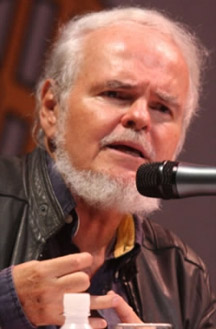CARACAS, (Reuters) – A new council created by Venezuelan President Hugo Chavez was not designed to act as kingmaker if cancer forces the charismatic leftist leader to step down, one member said.

Chavez’s announcement of the nine-member Council of State last week prompted speculation it was meant to prepare for such a scenario and mediate between political factions.
“I don’t think this has anything to do with a transition government, it’s not been conceived that way at all … We don’t have power to take administrative decisions or pass laws,” council member Luis Britto, a 71-year-old writer and lawyer, told Reuters in an interview late Thursday.
Chavez is seeking re-election in the South American OPEC member’s Oct. 7 presidential vote, but has been battling cancer for a year and spent about 100 days in Cuba over that period.
Britto said the council was a purely advisory body for the president, as designated in the 1999 constitution.
“The opposition have been planning a transition government since 2001, that policy led to their coup d’etat. They are the ones obsessed with transition,” he said, referring to political turbulence that briefly deposed Chavez in 2002.
Venezuelans are jittery over the country’s future in the face of Chavez’s cancer, which has hampered his re-election campaign and brought speculation he may not reach the vote or be able to finish his term should he win.
In office since 1999, Chavez has run Venezuela with a tough hand and obsessively one-man style and there is no clear successor in his self-styled socialist movement.
“KU KLUX KLAN COURT”
Opposition parties have united behind a single candidate, young state governor Henrique Capriles, while there is speculation Chavez’s senior allies are maneuvering to take his place, even though they publicly pledge loyalty.
Having appointed veteran loyalists from ministers to the military to the Council of State, Chavez’s first assignment for it was to extricate Venezuela from the Organization of American States’ human rights structure.
The Washington-based Inter-American Commission on Human Rights and Costa Rica-based tribunal have heard a series of cases accusing the Chavez government of authoritarianism and rights abuses during his 13-year rule.
Chavez, known around the world for his “anti-imperialist” rhetoric, has lambasted the OAS as a puppet of Washington.
“The human rights commission has a totally prejudicial position towards Venezuela,” said Britto, a deep-sea diver and author of more than 60 books ranging from music to piracy.
“Does an Afro-descendant go to a Ku Klux Klan court, or a Hebrew to a Nazi party court? The obvious prejudice disqualifies the judge,” he added.
Venezuela’s National Assembly has already backed Chavez’s suggestion that Venezuela pull out of the OAS rights’ bodies, which hear cases when citizens believe national institutions have not given them redress.
That has brought fierce criticism from opposition politicians and activists here, who say Chavez has routinely stamped on rights and harassed opponents during an increasingly autocratic rule.









